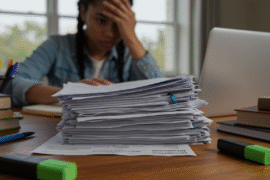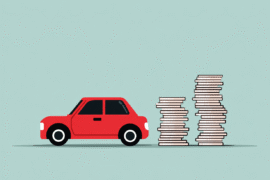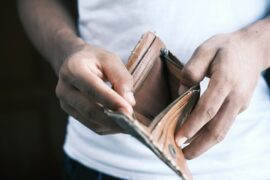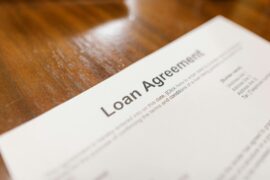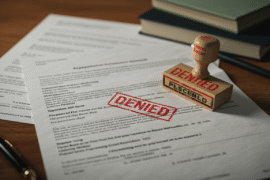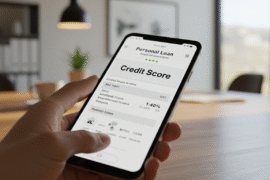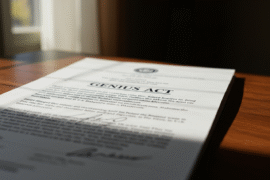This article may contain references to products or services from one or more of our advertisers or partners. We may receive compensation when you click on links to those products or services. Nonetheless, our opinions are our own.
The information presented in this article is accurate to the best of our knowledge at the time of publication. However, information is subject to change, and no guarantees are made about the continued accuracy or completeness of this content after its publication date.
Student Loan Default
Defaulting on student loans can have lasting financial consequences, affecting both immediate obligations and long-term financial stability. Many borrowers fall behind due to unexpected challenges such as job loss, underemployment, or personal hardship. While it may be tempting to ignore monthly payments, the consequences of student loan default are significant, and knowing the available solutions can help borrowers regain control of their financial future.
What Student Loan Default Means
A loan enters default status when payments are missed for a prolonged period. For federal student loans, default occurs after 270 days (approximately nine months) of nonpayment. For private student loans, the timeline is often shorter, with many lenders declaring default after 90 to 120 days. Once default is triggered, the lender or servicer gains the right to pursue aggressive collection measures.
Early Warning Signs and Short-Term Consequences
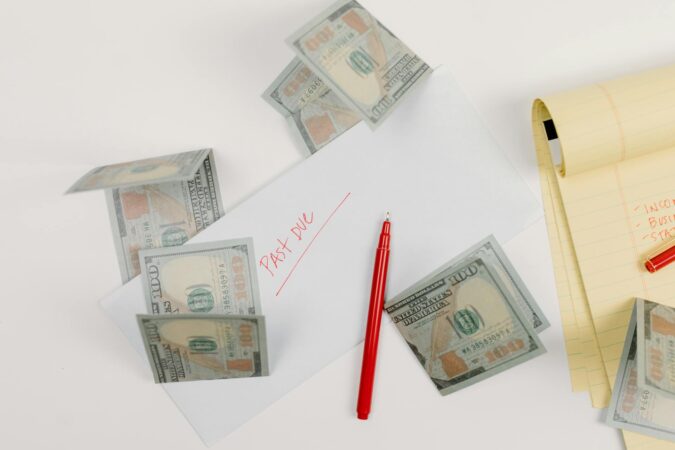
Missing even a single payment places a loan into delinquency, which is reported to credit bureaus if it extends beyond 30 days. Delinquency quickly reduces a borrower’s credit score and can result in higher interest rates on other forms of credit.
Immediate effects of falling behind include:
- Negative reporting to credit bureaus
- Accumulation of late fees
- Continuous accrual of interest, increasing the overall balance
These early penalties make catching up more difficult, and if payments are not resumed, the account will ultimately progress into default.
Long-Term Impact on Borrowing and Credit
Default has far-reaching financial effects that extend beyond the loan itself.
Borrowers may face:
- Severe credit score reduction: Defaults can reduce credit scores by 100 points or more, affecting approval for mortgages, car loans, or even rental housing.
- Collection activity: Once transferred to collections, borrowers may face frequent calls, letters, and aggressive repayment demands.
- Wage garnishment and tax refund seizure: Federal loans allow the government to garnish wages or withhold tax refunds without a court order.
- Legal action: Private lenders may sue to recover the outstanding balance, potentially leading to court-ordered repayment or property liens.
Default information can remain on a credit report for up to seven years, influencing financial opportunities long after the initial missed payments.
Federal vs. Private Loan Default Timelines
| Loan Type | When Default Occurs | Typical Consequences |
|---|---|---|
| Federal Student Loans | After 270 days of missed payments | Wage garnishment, tax refund seizure, loss of federal benefits |
| Private Student Loans | Often after 90 to 120 days | Lawsuits, court judgments, third-party collection efforts |
Voted "Best Overall Budgeting App" by Forbes and WSJ
Monarch Money helps you budget, track spending, set goals, and plan your financial future—all in one app.
Get 50% OFF your first year with code MONARCHVIP
Options to Prevent or Resolve Default
Even when repayment feels overwhelming, borrowers have several options to avoid or resolve default:
Income-Driven Repayment Plans
Available for federal loans, these plans adjust monthly payments based on income and family size. Some borrowers qualify for payments as low as $0, preventing default while maintaining good standing.
Deferment and Forbearance
These programs allow borrowers to temporarily pause payments. In deferment, interest may not accrue on certain federal loans, while in forbearance, interest continues to build. Both are intended as short-term relief during hardship.
Loan Rehabilitation
Borrowers with defaulted federal loans may pursue rehabilitation by making nine on-time monthly payments within ten months. Successful rehabilitation removes the default from credit records and restores eligibility for federal aid.
Consolidation
Defaulted federal loans may be consolidated into a new loan if specific repayment conditions are met. This option restores eligibility for income-driven plans and federal benefits.
Emotional and Personal Financial Impact
The burden of default often extends beyond finances. Many borrowers experience anxiety, stress, and uncertainty about their future. Financial hardship can affect housing stability, employment opportunities, and overall quality of life. Seeking professional counseling or nonprofit financial advice can provide valuable support during this period.
Rebuilding After Default
Recovering from default is possible but requires time and discipline.
Borrowers can take these steps:
- Resume consistent, on-time payments on any remaining or rehabilitated loans
- Consider secured credit cards or small personal loans to begin restoring credit
- Regularly monitor credit reports for accuracy and track progress
With persistence, damaged credit can improve, and opportunities such as homeownership or business financing may once again become accessible.
Final Thoughts
Defaulting on student loans has consequences that extend far beyond missed payments. From damaged credit to aggressive collection efforts, the impact can be severe and long-lasting. But by exploring repayment options, considering rehabilitation or consolidation, and seeking support from financial counselors, borrowers can move toward stability and eventually restore their financial health.
Frequently Asked Questions
What are the immediate consequences of missed payments?
Missed payments place loans into delinquency, trigger late fees, and result in negative reporting to credit bureaus, often within 30 days.
How long before a federal student loan is considered in default?
Federal loans typically enter default after 270 days of missed payments. Private loans may default after 90 to 120 days, depending on the lender.
What collection actions can lenders take?
Federal loans may involve wage garnishment, tax refund interception, and suspension of federal benefits. Private lenders may pursue lawsuits or court judgments.
Can a default be removed from a credit report?
Yes. Through rehabilitation, the record of default can be removed from a credit report, although delinquencies leading up to default may remain.
What programs help borrowers avoid default?
Income-driven repayment plans, deferment, forbearance, and loan consolidation provide structured relief options to manage payments and remain in good standing.

Reviewed and edited by Albert Fang.
See a typo or want to suggest an edit/revision to the content? Use the contact us form to provide feedback.
At FangWallet, we value editorial integrity and open collaboration in curating quality content for readers to enjoy. Much appreciated for the assist.
Did you like our article and find it insightful? We encourage sharing the article link with family and friends to benefit as well - better yet, sharing on social media. Thank you for the support! 🍉
Article Title: What Happens If You Stop Paying Student Loans
https://fangwallet.com/2025/09/09/what-happens-if-you-stop-paying-student-loans/The FangWallet Promise
FangWallet is an editorially independent resource - founded on breaking down challenging financial concepts for anyone to understand since 2014. While we adhere to editorial integrity, note that this post may contain references to products from our partners.
The FangWallet promise is always to have your best interest in mind and be transparent and honest about the financial picture.
Become an Insider

Subscribe to get a free daily budget planner printable to help get your money on track!
Make passive money the right way. No spam.
Editorial Disclaimer: The editorial content on this page is not provided by any of the companies mentioned. The opinions expressed here are the author's alone.
The content of this website is for informational purposes only and does not represent investment advice, or an offer or solicitation to buy or sell any security, investment, or product. Investors are encouraged to do their own due diligence, and, if necessary, consult professional advising before making any investment decisions. Investing involves a high degree of risk, and financial losses may occur including the potential loss of principal.
Source Citation References:
+ Inspo
https://studentaid.gov/help-center/answers/article/what-happens-if-i-do-not-pay-back-student-loan










